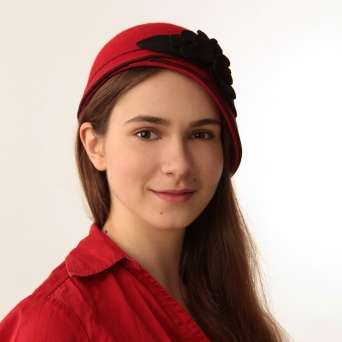Verdi’s Ernani, his fifth opera and an even bigger hit than Nabucco, is relatively infrequently performed, which makes this recording of a superb Met production a treasure. The video would be worth watching for the costumes and sets alone; fortunately, it also features a talented cast of Verdi singers.
The costumes are luxurious, with fabrics and patterns that faithfully represent the styles of the 16th-century setting and lace and embroidery details that stun even in the HD close-ups. They are also numerous: Elvira wears four different dresses, each distinctive and impressive. The sets, originally designed by director Pier Luigi Samaritani in 1983, are similarly striking but more restrained, with much bare stone in the castles. This has the effect of both exuding a sense of grandeur and keeping the focus on the singers.
And the singers certainly deserve to be focused on! The show opens in a bandit camp, with a rousingly sung male chorus. As the bandit chief Ernani, Marcelo Álvarez seems to struggle a bit in the opening scene, which admittedly contains a very tricky cabaletta (“O tu, che l’alma adora”). However, by the following scene, he sounds fully warmed up, and he sings the remainder of the opera with a pleasing and appropriately heroic tone. Ernani’s lover Elvira (Angela Meade) has a complicated life – she is also loved by King Carlos V and by her guardian Silva, to whom she is engaged. Ms Meade repeats her Met debut role, and it’s clear from her first scene that she’s very comfortable with it. Her part begins with the famous aria “Ernani, involami”, in which she displays extraordinary dynamic range (including several spinning pianissimo notes), unusual vocal flexibility, and exciting trills. She keeps up the thrilling singing throughout the opera, delivering the most musically nuanced and impressive performance of the cast.
As the king, Dmitri Hvorostovsky sings and moves with easy haughtiness and seems both genuinely besotted with Elvira and genuinely motivated by virtue when he renounces her. His tone is consistently ringing, and his contemplative Act III aria (“Oh, de’ verd’anni miei”) is a model of expressive, lyrical, legato singing. Ferruccio Furlanetto’s Silva is also surprisingly believable in his affection for Elvira, especially in Act II when he asks the king to leave Elvira with him. In a cast that occasionally lets the melodramatic libretto do their acting for them, Mr Furlanetto stands out for consistent dramatic commitment in a difficult role. He cuts an especially striking figure in the final scene, as a vengeful specter who separates the lovers in their dying moments and stands triumphantly between them as the curtain falls. (In this production, it is indeed “their dying moments” – true to Victor Hugo’s original play, though contrary to the suggestion of the libretto, Elvira commits suicide with Ernani.)
Under the baton of Marco Armiliato, the Metropolitan Opera Orchestra plays sensitively and movingly. The flutes and brasses sound particularly lovely in the overture, and the playing is well coordinated with the singers in both tempo and volume throughout. Maestro Armiliato keeps the overall pace fast, a good choice for this convoluted plot, which grows quickly and eventually spirals tragically out of the characters’ control.
Opportunities to see Ernani are rare, so opera lovers are fortunate that the Met combined a cast of talented Verdi veterans, a skilled conductor, and a dazzling array of time period costumes and sets for this production. They are even more fortunate that it was captured well on video for the repeated viewing it deserves.


